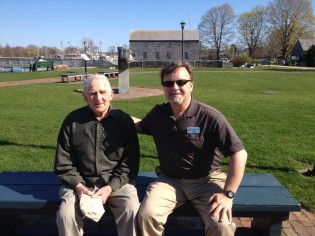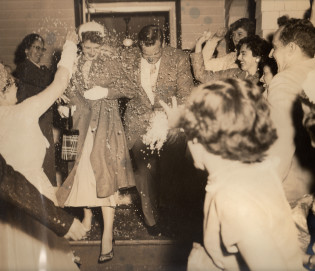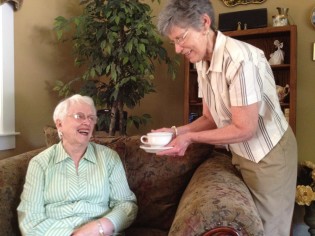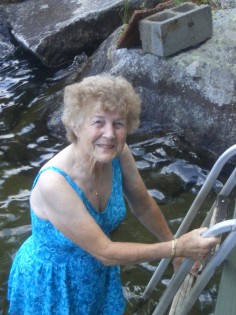I have discussed the elements necessary to maintain good cognitive health throughout aging and, possibly slow the progression of dementia. I stumbled upon my own answer this September and I am feeling mentally sharper than ever, along with being sore and calloused.
It turns out that I have had a 33 year desire to row. This is a long buried desire of my subconscious.
When I was a freshman at Northeastern University, I followed a new friend down to the Charles River where we were excited observers of the Head of the Charles Regatta. At the time I do think I was equally impressed with the spectators as with the athletic rowers. Rowing is a preppy sport and this was 1980, The Preppy Handbook had just been published that month and everyone had not only read it, they were living it. Pink and green pants with alligators were everywhere and everyone had a perfect picnic basket on a blanket by the river. http://www.amazon.com/Official-Preppy-Handbook-Lisa-Birnbach/dp/0894801406
But I did also notice the rowing and I was enthralled. The synchronicity of 9 people in one shell, skimming across the water. I caught my breath. It looked like a perfect meditation. It looked effortless.
It is not effortless. The Baboosic Lake Rowing Club on Baboosic Lake in Amherst, NH is a new, non-profit club and I live around the corner from the beach on which these shells are launched. Hence my stumbling in to my long lost desire and my effort to prevent my cognitive decline. And I still stumble.
As the research states, it is good to learn something new to maintain mental acuity. Rowing is technical and did not come naturally to me. I went home after the first morning to tearfully tell my 16 year old that his mother was the worst one on the team. Being on the team, by the way, just meant passing a swim test. He calmly told me that to be good at something we have to stick with it and keep practicing. He has always been a good listener.
Legs, back, arms, arms, back, legs. These elements move separately to grab the most water, but smoothly. We are fast away with our arms, rock forward to 11 o:clock with our trunk, and slide slowly up the recovery, then send the boat away with our quadriceps, hinging back to the 1 o:clock position, then pinching off the stroke with our arms. We feather the oars as they rise out of the water, and with luck, or practice, hear that click and then click, back to square to catch the water. The oars, as if on a rubber band throughout the movement, stay 4-5 inches off the gunwales, setting the boat so we don’t rock side to side.
Timing is everything. We must enter and exit the water together or again the boat rocks to one side, oars on one side high in the air and on the other, dragging on the water. We are a team, but each responsible for our own stroke. Our coach Jim says each one must trust everyone else on the team to do what is right and in turn we are equally responsible. Hmmm. This sounds like a metaphor.
Further research on Alzheimer’s care and prevention of dementia indicate that learning a new language is one suggested activity to staying mentally young. Rowing fits the bill for me. This sport has its own language. Port, starboard, stern and bow are the sides, back and front of the boat. Don’t let it bother you that the front, the bow is behind you because you face away from where you are going. A “sweep” is a rower who rows with one oar, which we do. I row port which is on the left of the boat facing the bow but on my right when I am sitting in the boat. A sculler rows with 2 oars, thank goodness I don’t have to figure that out. One is enough.
The coxswain tells us what to do. The average age in our boat is about 48 (sorry team if I am off here) but our coxswain is 15. Please take note how the 15 and 16 year old in this story are the shining stars.
We always listen to her. She says “check it down” we square our oars in the water and stop the boat. She says “weigh enough” and we stop what we are doing. On the water this means holding the oars at that perfect spot above the water for the perfect set, and then dropping them on the water together. Smack. I hear it is supposed to sound great when it happens and I am excited for the moment when we do hit it together. On the beach this means we stop walking while the boat is sitting on our shoulders or overhead and wait for the next command. This boat is heavy, by the way.
But the point is less the muscles I am developing and more, I have learned a new language. Check that off my list of things to do for cognitive excellence. Of course, being physically active also goes a long way in maintaining our overall health and hopefully you can see how I am accomplishing this with my new preppy sport.
Out this spring is the news that socialization is critical to healthy aging. In fact, social isolation is as likely to contribute to early death as smoking 15 cigarettes a day. But I am not socially isolated. I am on a team. I am no longer alone in the basement trying to convince myself that my workout is more important than my family’s laundry. I am one of 9 people who sit in a shell of a boat together. We talk before we get in the boat, we talk a little as we carry the heavy boat and flip it over to set it in the water. We mostly follow directions and work together. But there is the basic sense of support that you get on an adult team. We are happy when we make progress. We congratulate each other. We enjoy the gorgeous mist rising off the lake at 6 in the morning as the sun comes up and the water invites us across. I am not socially isolated.
So rowing is my long lost sport, my new addiction, and my answer to the risks of cognitive decline with aging.
We are going to our first race on Sunday. We will take either first or second place of the two master’s teams racing. We will come away smarter, happier, and, I think, proud of our ability to listen to a 15 year old tell us what to do.


 The bank, grocery store, hardware store, hairdresser. The doctor and dentist. Church or temple. The butcher, the baker, the candlestick maker. What if you had no way to get there? Wherever “there” is for you today, there is no doubt that giving up driving will impact your sense of helplessness.
The bank, grocery store, hardware store, hairdresser. The doctor and dentist. Church or temple. The butcher, the baker, the candlestick maker. What if you had no way to get there? Wherever “there” is for you today, there is no doubt that giving up driving will impact your sense of helplessness.

 One of the most interesting and troubling aspects of dementia is the idea that there can be a complete shift in reality in the mind of the person diagnosed. As family members and caregivers, how we react to and interact in that shifting reality is paramount to what might be seen as a good day or a bad day.
One of the most interesting and troubling aspects of dementia is the idea that there can be a complete shift in reality in the mind of the person diagnosed. As family members and caregivers, how we react to and interact in that shifting reality is paramount to what might be seen as a good day or a bad day.